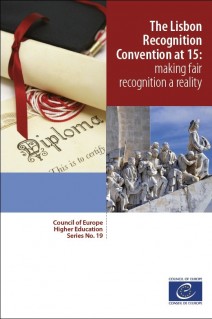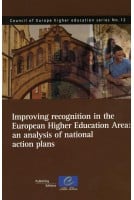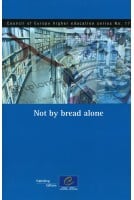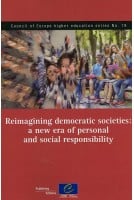



The Lisbon Recognition Convention, developed by the Council of Europe and UNESCO, is the main international legal text on the international recognition of qualifications and has been ratified by more than 50 countries. Few Council of Europe conventions have achieved a greater number of ratifications, and the political importance of the Lisbon Recognition Convention is very considerable. The recognition of qualifications is a necessary, if not sufficient, condition for both student and labour mobility.
To mark the 15th anniversary of the convention, this book examines some of the challenges to the international recognition of qualifications. The convention is an essential legal text, but it needs to be put into better practice. How can learners use their degrees and qualifications in a new country, without losing the real value of those qualifications? The authors, who come from a variety of backgrounds, review the policies and practice of recognition, link recognition to the broader higher education policy debate and consider the role of recognition in enabling individuals to move freely across borders.
Contents
Preface (Snežana Samardžic-Markovic)
A word from the editors (Sjur Bergan and Carita Blomqvist)
Background and context
The Lisbon Recognition Convention as a paradigmatic shift and a change of the philosophy of recognition: between reflection and sentiments (Pavel Zgaga)
Origins, history and evolution of the Lisbon Recognition Convention: a view of the past and a look at the future (Sjur Bergan)
Regional perspectives
The Lisbon Recognition Convention in the South Pacific (Frances Kelly)
A perspective from the South Caucasus: the case of Armenia (Gayane Harutyunyan)
A perspective from South-Eastern Europe – No development without recognition (Milica Popovic)
Implementing the Lisbon Recognition Convention: a perspective from an EU member state (Aurelija Valeikiene)
The Lisbon Recognition Convention at 15: a perspective from Turkey (Ercan Laçin)
Stakeholder perspectives
Making fair recognition a reality: a student point of view (Karina Ufert)
Are conventions on recognition of higher education qualifications a limitation of academic freedom and university autonomy? (Jens Vraa-Jensen)
A university perspective on recognition (Howard Davies)
Instruments of recognition
Quality assurance as an element of international recognition (Maria Kelo)
Qualifications frameworks as a recognition tool (Sjur Bergan)
Substantial difference – An essential principle in promoting mobility and recognition (E. Stephen Hunt)
Learning outcomes as a tool for recognition (Stephen Adam)
With both feet on the ground: EAR projects, instruments for recognition (Lucie de Bruin)
Challenges
Recognition in a broader policy context (Carita Blomqvist)
Challenges to recognition from an ENIC perspective (Allan Bruun Pedersen)
Recognition through rankings? (Sjur Bergan)
Automatic academic recognition: grasping the nettle (Adam Tyson)
Recognition of qualifications not linked to an education system (Sjur Bergan)
A multi-faceted challenge: the recognition of non-formal education (Jean-Philippe Restoueix)
About the editors and authors
Download an extract (1000)







The Lisbon Recognition Convention, developed by the Council of Europe and UNESCO, is the main international legal text on the international recognition of qualifications and has been ratified by more than 50 countries. Few Council of Europe conventions have achieved a greater number of ratifications, and the political importance of the Lisbon Recognition Convention is very considerable. The recognition of qualifications is a necessary, if not sufficient, condition for both student and labour mobility.
To mark the 15th anniversary of the convention, this book examines some of the challenges to the international recognition of qualifications. The convention is an essential legal text, but it needs to be put into better practice. How can learners use their degrees and qualifications in a new country, without losing the real value of those qualifications? The authors, who come from a variety of backgrounds, review the policies and practice of recognition, link recognition to the broader higher education policy debate and consider the role of recognition in enabling individuals to move freely across borders.
Please note that in accordance with our terms & conditions, PDF/epubs may only be purchased by private individuals.
